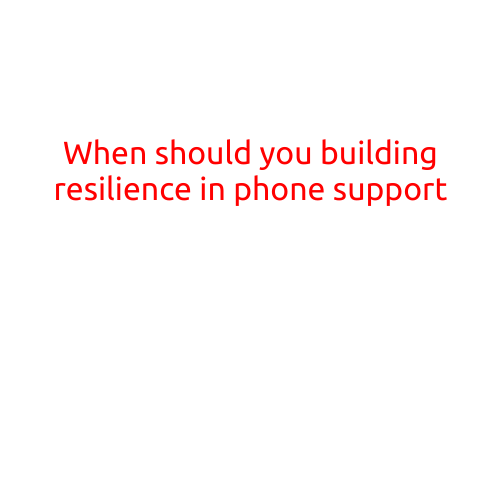
When Should You Prepare for Important Calls?
In today’s fast-paced and ever-changing business environment, important calls can be a crucial part of professional life. Whether it’s a client, a potential investor, or a team member, having a significant conversation can make or break deals, spark new opportunities, or resolve pressing issues. As such, it’s crucial to prepare thoroughly for these types of calls to ensure you make the most of them.
Why Preparation is Key
Preparation is essential for several reasons:
- Builds Confidence: When you’re well-prepared, you’re more likely to feel confident and assertive during the call, which can help you to communicate effectively and persuasively.
- Reduces Stress: Preparation can alleviate anxiety and stress, allowing you to focus on the conversation and respond thoughtfully to questions and concerns.
- Improves Communication: By having a clear plan and understanding of what you want to discuss, you’re better equipped to communicate your message effectively and avoid misunderstandings.
- Enhances Credibility: Showing up unprepared can give the impression that you’re not taking the conversation seriously or that you’re not interested in the other person’s time. Preparation demonstrates your commitment and helps to establish credibility.
When to Prepare
So, when should you prepare for important calls?
- At Least 30 Minutes Before: Take the time to review your notes, gather any necessary documents or materials, and mentally prepare yourself for the conversation.
- The Night Before: If possible, prepare as much as you can the night before the call, including researching the person or company, outlining your points, and identifying potential questions or concerns.
- Before a Series of Calls: If you have multiple important calls lined up, prepare a comprehensive template or summary document that covers the key points you want to discuss, and tailor your approach for each individual call.
Tips for Effective Preparation
Here are some additional tips to help you prepare effectively:
- Know Your Objectives: Clearly define what you want to achieve from the call and prioritize your key messages.
- Anticipate Questions: Think about the types of questions the other person might ask and be ready to respond confidently and comprehensively.
- Gather Materials: Ensure you have all the necessary documents, reports, and data to support your arguments and address any concerns.
- Practice Your Pitch: Rehearse your key messages and anticipate how you’ll respond to questions and potential objections.
- Take Notes: During the call, take notes to refer back to later and ensure you don’t miss any important points or questions.
Conclusion
In conclusion, preparation is essential for important calls. By taking the time to review, plan, and rehearse, you can build confidence, reduce stress, and improve communication. Remember to prepare at least 30 minutes before the call, gather necessary materials, and anticipate questions and concerns. With effective preparation, you’ll be well-equipped to make the most of your important calls and achieve your desired outcomes.





